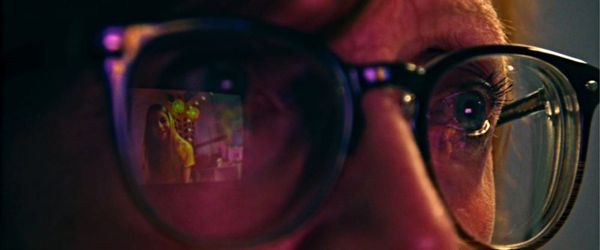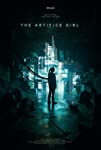Eye For Film >> Movies >> The Artifice Girl (2022) Film Review
The Artifice Girl
Reviewed by: Jennie Kermode

Policing the dark side of the internet is gruesome work. Burnout rates are really high and it can seriously damage workers’ mental health as they are forced to confront, over and over again, the very worst of humanity. The problem is still worse when it comes to tracking down child abusers. It’s impossible to send a real child into the spaces they use to try and entrap them, so for a long time investigators relied on using officers who simply looked underage – which meant that they were still young enough to be additional susceptible to psychological damage. Latterly, digitally generated avatars which look like children have stepped in to allow specialists of any age to do the job, but there is still a human cost. What if it were possible to generate not only a visual simulacrum of a child but an adequately sophisticated mental one, so that the task could be handled by AI?
This is the premise behind Franklin Ritch’s The Artifice Girl, which screened as part of 2022’s Fantasia International Film Festival. It’s smarter than most films of its ilk and refreshingly free of misplaced sentiment. Constructed in three acts, it opens with a lengthy scene in a single, windowless room, which gives director Franklin Ritch a chance to show what he can do, creating tension in a situation where a weaker director would leave viewers bored. He also stars, as Gareth, an itinerant computing scientist under interrogation by investigative agents Deena Helms (Sinda Nichols) and Amos McCullough (David Girard). They know that he has been to parts of the web where he should not have been. They want to confirm his identity, and find out why. They probably know a lot more, but don’t quite feel ready to believe it. In due course, the dialogue morphs into an interrogation. It ramifications will haunt the trio for the rest of their lives.
Act two is set 15 years later, again in a single room, and deals with the impact of changing technology and evolving AI. By act three, only Gareth – a couple of decades younger at the outset – is still around, now elderly and played with quiet, uneasy authority by Lance Henriksen. At this point, his creation has changed yet again. There is an echo of Frankenstein meeting his monster, but this monster’s prime concern is with understanding and helping the vulnerable. She may be on the brink of accepting that that could include herself.
This is Cherry, played with remarkable skill by young Tatum Matthews. To begin with, she is a fairly simple AI construct, engaging in conversation using an established set of responses and contacting Gareth for assistance where needed. A smart analyst could suss her out relatively easily, but she’s good enough to catch most predators and evade situations where she might be exposed. She’s also good enough to fool Amos, who struggles to get his head around the idea that she’s just a piece of code, asking her existential questions as Deena smiles in the background and tries to explain. Like all such systems, though, Cherry is designed to learn from experience, and this raises the critical question: can an AI, given enough experience and enough processing power, become something equivalent to a human mind? If so, has the original problem resurfaced, with the individual doing the work once against capable of suffering as a result?
To people familiar with the state of AI technology today, this might seem unrealistic, but sometimes philosophy is a better tool for investigating future problems than pure science, enabling us to examine what we cannot yet reasonably imagine. Intelligent science fiction is a tool which can help us to prepare for life in a changing world, and Ritch has done a good job in that regard, with no need for the bells and whistles, or explosions, frequently attached to the genre in its cinematic form. If there is a weakness to the proposal he makes here, it is that there is no discussion of placing artificial limits of the development of intelligence – but that would raise ethical questions of its own, and the film is stronger because he keeps it tight.
The one adjacent question which he does address is the potential impact on developing intelligence of having the capacity to analyse much more external data at any one time. Computers are good at some things and brains are good at others, so it’s tricky to look at this simply in terms of intelligence, as if that were a discrete concept, but Ritch does provide little reminders of Cherry’s otherness. Matthews portrays this very effectively whilst maintaining the necessary poise. In the third act, her interactions with Henriksen create an unspoken comparison between the recognition of this and the process which all parents go through in gradually realising that their children have become separate and fundamentally unknowable individuals.
An efficient piece of low budget filmmaking with enough human interest to keep it engaging during its slower stretches, The Artifice Girl is a great calling card for a creative group with big ambitions, and an interesting contribution to debates around worker exploitation and the future of AI.
Reviewed on: 28 Jul 2022

















